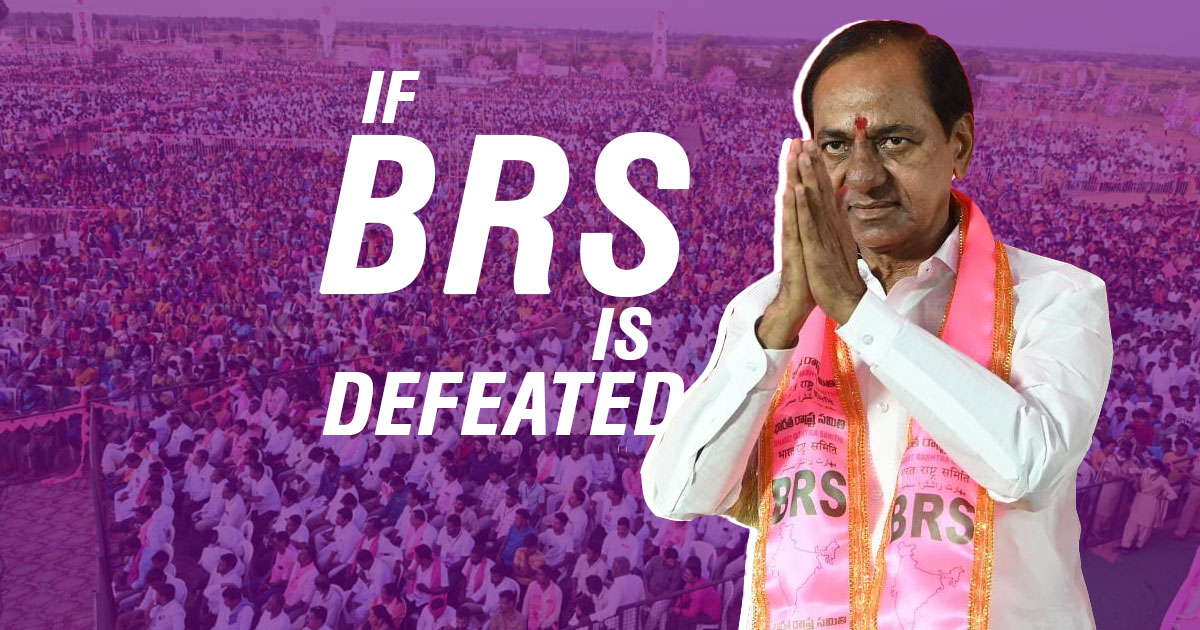In the relentless battle of narratives, where political foes engage in a war of words, truth often becomes a casualty. The latest skirmish involves Eenadu’s recent article, a dubious piece that has set a new low in conveying incorrect and baseless figures on the state finances of Andhra Pradesh. Let’s dissect the claims and counterclaims in the light of verifiable data and official reports.
Despite sincere efforts by the State Government to counter misinformation with transparent, verifiable sources, the opposition-affiliated media persists in spreading false narratives. The recent Eenadu article, in particular, has raised eyebrows for its objectionable and distasteful manner of presenting financial figures.
RBI’s Annual Report: Unraveling the Truth
The Reserve Bank of India (RBI), a credible financial authority, releases an annual report titled ‘State Finances – A Study of Budgets.’ This report meticulously outlines the state-wise details of outstanding liabilities. According to the latest report, the total outstanding liabilities of the Andhra Pradesh government at the end of March 2023 stand at Rs 4,28,715.70 Crores.
In the light of the continuous misinformation propaganda by the opposition parties and the related media, now slipping to a new low today with the Eenadu article wherein the newspaper shamelessly conveyed incorrect and baseless figures in the most objectionable distasteful… pic.twitter.com/eWp4P283Oa
— FactCheck.AP.Gov.in (@FactCheckAPGov) December 19, 2023
Comparative Analysis: TDP vs. YSRCP Governments
TDP Government’s Legacy (2014-2019):
The outstanding liabilities during the TDP government increased by 169% over five years, with a compounded annual growth rate (CAGR) of 21.87%.
YSRCP Government’s Performance (2019-2023):
Under the YSRCP government, outstanding liabilities increased by 55%, with a lower CAGR of 12.07% during the same period.
Debunking Off-Budget Borrowing Allegations: A Matter of Procedure
Addressing rumours about off-budget borrowings, the State Government emphasizes adherence to Article 293(1) and the Andhra Pradesh Fiscal Responsibility and Budget Management Act, 2005. Detailed disclosures are made annually, and allegations of concealed information are refuted.
Duvvuri Krishna: Compounded annual growth rate of liabilities in @JaiTDP regime were almost double compared to @YSRCParty. Under TDP it stood at 21.87% while for YSRCP it is 12.07% respectively.#Andhra #AndhraPradesh #AndhraPolitics #AndhraFinances https://t.co/VY7agNsyuf pic.twitter.com/FGXAiXj22b
— SNV Sudhir (@sudhirjourno) December 19, 2023
PSU Borrowings: Separating Fact from Fiction
Dispelling rumours about hidden borrowings by state-owned PSUs, the Finance Department provides a comprehensive breakdown of debt availed by these entities. The credibility of RBI, CAG, and other financial authorities in overseeing such borrowings is highlighted.
Questioning Repayment Allegations: Setting the Record Straight
The claim that the state government is not making efforts to repay loans is debunked, emphasizing that debt repayment is a charged expenditure, debited directly to the Consolidated Fund following RBI schedules. The allegations are deemed baseless.
Capital Expenditure and Economic Realities: A Counter-Narrative
Responding to accusations of reduced capital expenditure under the present government, the Finance Department points out the impact of the global COVID-19 pandemic on economies worldwide. The capital expenditure remains in line with economic challenges, and claims of a significant reduction are contested.
Borrowings by APSBCL: Navigating Ratings and Structured Finance
Examining the issuance of NCDs by Andhra Pradesh State Beverages Corporation Limited, the Finance Department questions Eenadu’s portrayal of the issuance as unconstitutional. Ratings, terms, and favorable conditions are presented to refute the claim.
RBI Caution and Policy Shifts: National Context Matters
Addressing claims that the RBI cautioned banks against lending to AP PSUs, the Finance Department clarifies that this is a nationwide policy shift, not exclusive to Andhra Pradesh. The increased consciousness at the central level regarding PSU borrowings is highlighted.
A Plea for Responsible Journalism: The Consequences of Misinformation
In conclusion, the Finance Department urges opposition-affiliated media to exercise restraint and avoid spreading rumours for political gains. Misinformation, as seen in the Eenadu article, can have far-reaching consequences on the state’s future and overall development.
As the political battleground continues to evolve, separating fact from fiction becomes paramount for the electorate seeking an accurate understanding of the economic landscape. The onus is on the media to prioritize truth over sensationalism in the interest of a well-informed public.








[…] Also Read: Andhra Pradesh Government’s white paper on state finances, busts Opposition claims on TDP Propagan… […]